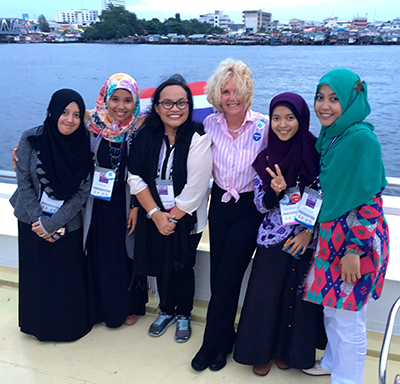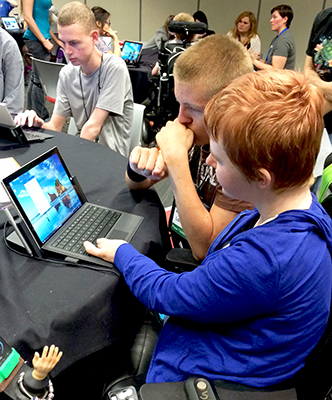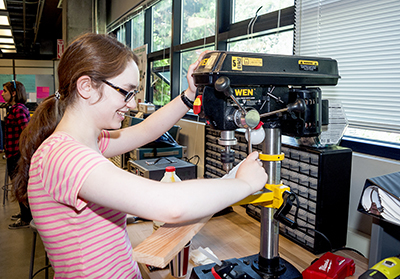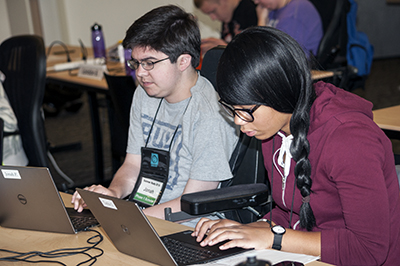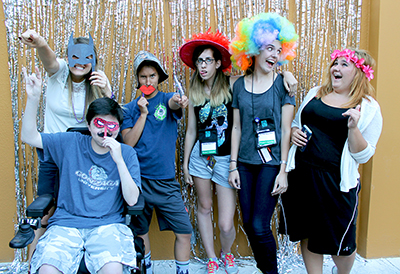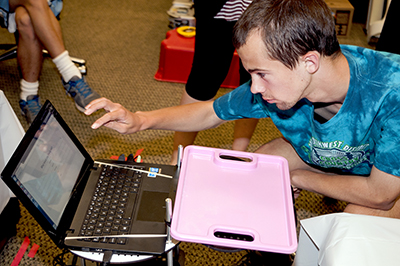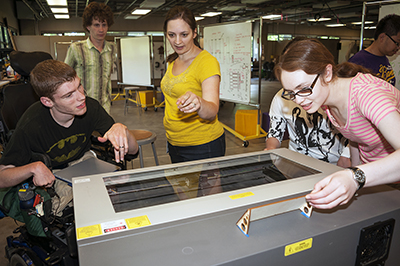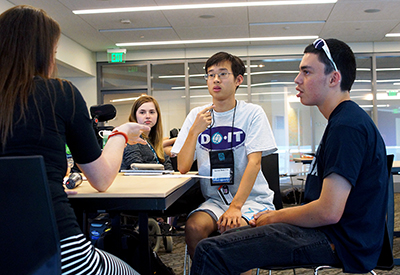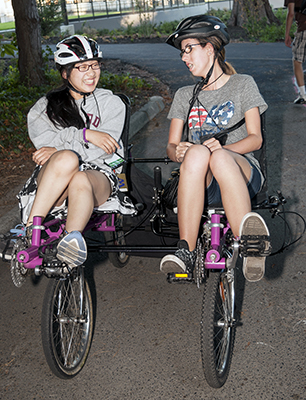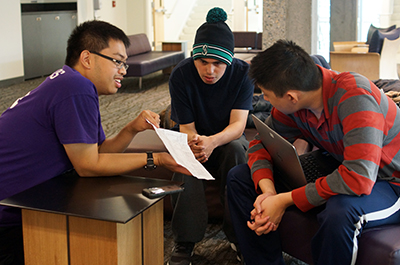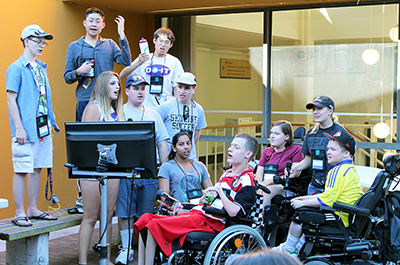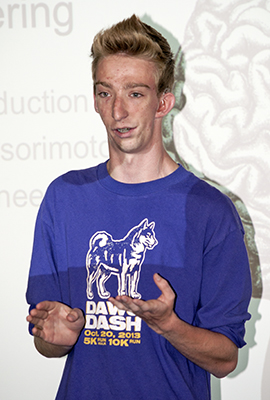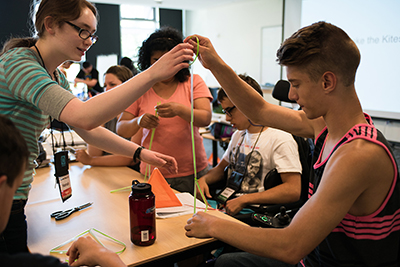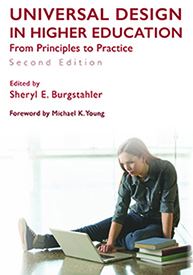Always ask before helping a person with a disability.
I wanted to share with you a question posed by DO-IT staff in our Internet discussion forum and some of the responses so that you can get the flavor of the many rich conversations the DO-IT community has online. Forum posts are edited for clarity and brevity.
I read the article “8 ‘Helpful’ Things That Don’t Really Help People With Disabilities” based on a Reddit forum post recently, and I wanted to ask your opinion: Do you agree with the comments in the article? Can you think of more examples of “helpful” things that people do that don’t really help?
DO-IT Ambassador: Having to deal with the same conversations and say the same thing time and time again gets annoying.
DO-IT Scholar: I really hate people asking questions. I get that people are curious, but I would prefer if people just saw me as a person.
DO-IT Scholar: The one that resonates with me the most is people giving help when I do not need it. This perpetuates the misconception that I am helpless.
DO-IT Ambassador: In my opinion, it’s okay if a person kindly asks if someone with a visible disability needs help. However, if they continue to “help” even after I’ve said no, then they are just selfishly trying to make themselves feel good. It is very disrespectful.
DO-IT Ambassador: I think people help because they don’t understand. People usually do not even ask me before they start helping.
DO-IT Mentor: I agree. One thing I find difficult to deal with is when people try to hold me when I ascend/descend a bus, train, or aircraft. I have to politely ask them to leave me alone, because I know how to coordinate myself. If others try to assist me while I explore my surroundings, I lose my balance and trip. If I need help, I always ask.
At airports, people try to make me sit in a wheelchair and take me to my aircraft. I tell them I prefer to hold onto one’s elbow. If they insist on the wheelchair, I tell them to sit in the chair and I would gladly push the chair for them as they guide me! One time, a guy apologized as he saw how capable I was. I said, “it’s not about me being capable. We all are humans and deserve to interact with one another in a respectful way.” Experience has shown me that being witty boosts my spirits when dealing with these things.
DO-IT Ambassador: Often when people are told I need assistance, they just assume wheelchair instead of guide. I think there should be some sort of mandatory training for airport staff. But if people try to help me thinking I am helpless, then I get mad.
DO-IT Ambassador: I don’t think people are consciously aware that what they do is selfish, but if you ignore the wishes of a person with a disability, then it stops being helpful.
DO-IT Staff: I always assumed the use of wheelchairs at airports for people with vision impairments was for the airline staff, so they could go as fast as they want and not be slowed down with guided walking. I assume, in many cases, they know better, but really don’t care. I can even imagine them thinking “Hey, I am getting you to your spot as fast as possible--how thoughtful of me,” and “We do it for safety reasons.” Both of those thoughts, of course, are condescending and rude.
